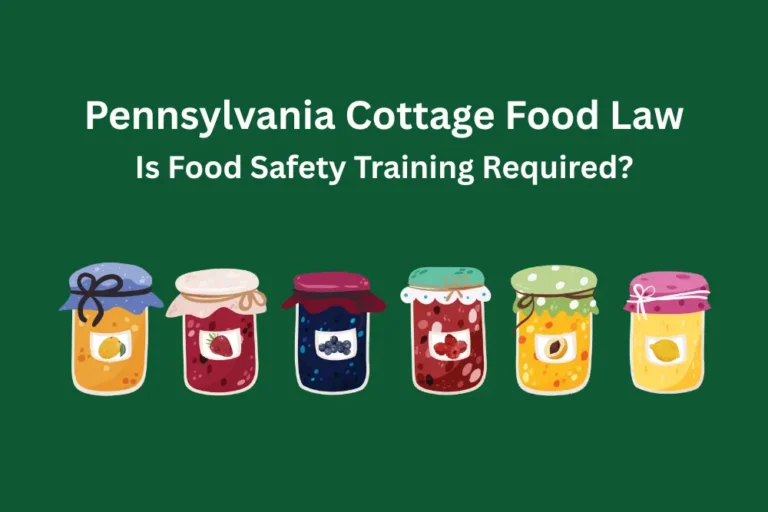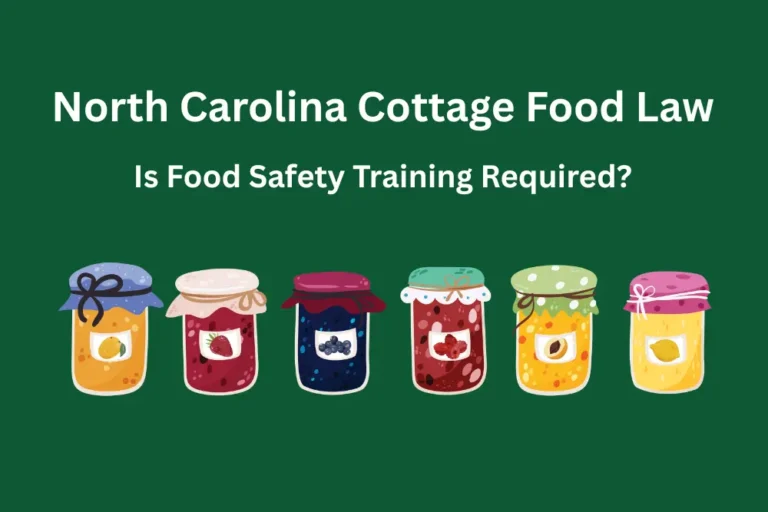New Hampshire Cottage Food Law: Do You Need Food Safety Training?
Article Summary
Selling homemade food in New Hampshire? The cottage food law doesn’t require food handler training, but getting your card can still give your business an edge. This quick video explains why it’s worth it, what you’re allowed to sell, and how to get your food handler card online with FoodSafePal.
Selling homemade food can be a great way to share your products and earn extra income, but every state has its own rules you need to follow.
Each state sets its own cottage food laws that define what you can make, where and how you can sell it, and whether you need food safety training.
This article explains New Hampshire’s cottage food law and whether you need food safety training to sell homemade food.
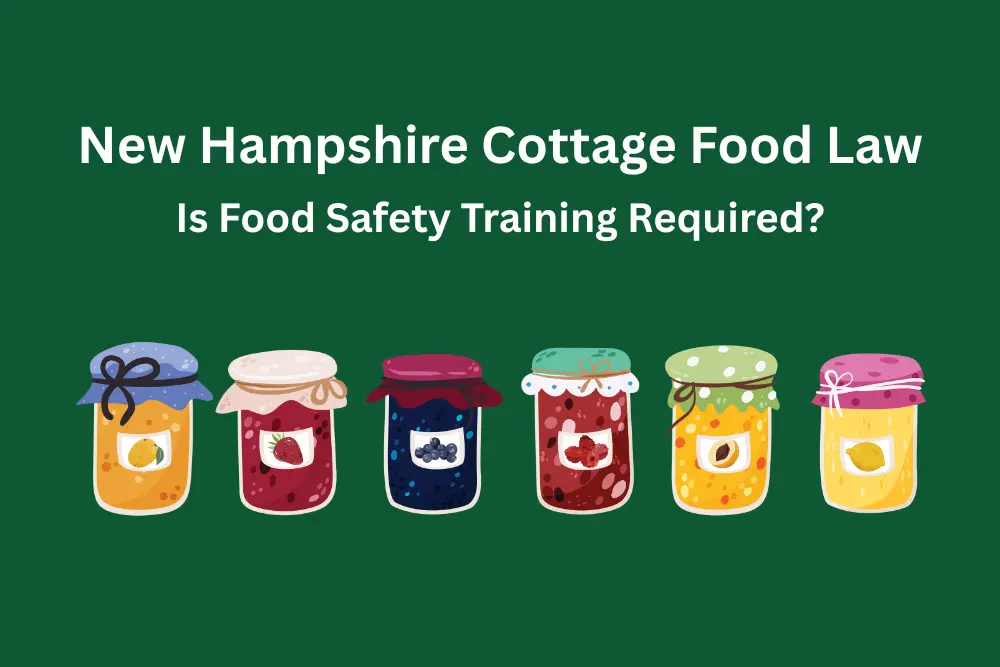
New Hampshire cottage food law
New Hampshire allows residents to make and sell a wide range of homemade, non-TCS (non-temperature control for safety) foods from their home kitchen. These foods are shelf-stable, safe to store at room temperature, and do not require refrigeration to stay safe.
Allowed foods include:
- Breads, cookies, cakes, and pies (non-refrigerated only)
- Brownies and other shelf-stable baked goods
- Candies, lollipops, and freeze-dried candy
- Jams and jellies using approved recipes or a process review
- Shelf-stable fruit butters that pass a process review
- Acidified foods such as salsa, pickles, pepper jellies, BBQ sauces, and hot sauces (with a process review if required)
- Dry mixes, spice blends, seasoning blends, and instant bread mixes
- Roasted or ground coffee
- Sweet breads or muffins made with baked-in fruits or vegetables
At the same time, New Hampshire does not allow homestead operators to make or sell foods that require time or temperature control for safety. These TCS or specialized-process foods include:
- Meat, poultry, seafood, and dairy products
- Bottled beverages (iced coffee, teas, lemonades, juices, etc.)
- Apple cider
- Low-acid canned goods
- Pumpkin butter or other low-acid fruit butters
- Dehydrated fruits, vegetables, or meats
- Uncooked refrigerated dough
- Live sourdough starters
- Any food requiring refrigeration for safety
- Any food made in a rented kitchen, outbuilding, garage, shed, or barn
New Hampshire offers two ways to sell homemade food:
- Exempt Homestead Food Operation: No license is needed if you sell directly to consumers from your home, farm stand, farmers markets, or retail food stores.
- Licensed Homestead Food Operation: A Homestead Food License is required if you want to sell online, by mail order, to restaurants, or to wholesalers, brokers, or retailers for resale.
Summary
New Hampshire allows you to make and sell many types of shelf-stable, non-TCS foods from your home kitchen, but you cannot sell foods requiring refrigeration, low-acid canned goods, bottled beverages, or anything involving special processing. Exempt sellers can sell directly to consumers at approved in-person venues, while licensed sellers may sell by additional means.
Do you need food safety training to sell homemade food in New Hampshire?
New Hampshire does not require food safety training or a New Hampshire food handler card to sell homemade food, whether you’re exempt or licensed.
Still, completing a food safety course is a smart way to protect your customers, reduce risk, and strengthen your business. Some farmers markets, event organizers, and insurers may ask for proof of training before allowing you to participate.
If you decide to get trained, choose an ANSI-National Accreditation Board (ANAB)–accredited food handler course so your training meets recognized national standards.
FoodSafePal’s Food Handler course is ANAB-accredited, fully online, and takes about 90 minutes to complete. Once you pass, you’ll get instant access to your food handler card and certificate, plus the option to order a printed version for display at markets or for your records.
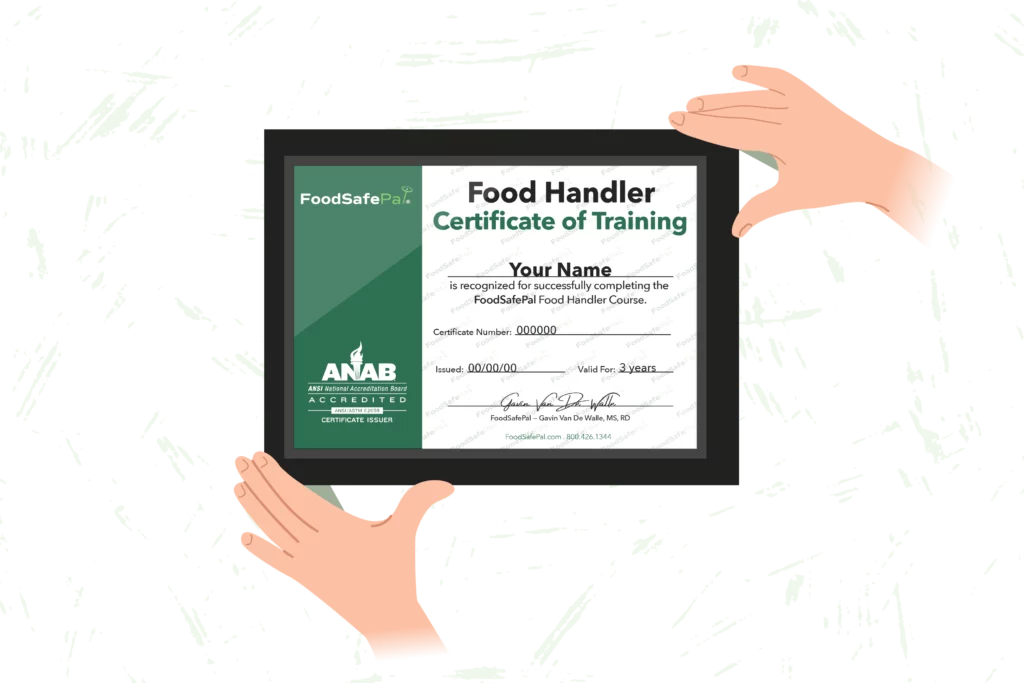
Get Your New Hampshire Food Handlers Card
Instant certificate. 100% online in about 90 minutes.
Summary
Food safety training isn’t required in New Hampshire, but completing an ANAB-accredited food handler course can help you build credibility, meet market or insurance requirements, and show customers you take safety seriously.
Labeling requirements
New Hampshire requires all homestead food products to be labeled, but the state has two different labeling options depending on where you sell.
If you sell at farmers markets, retail stores, restaurants, or any public venue, your label must include:
- Product name
- Your name
- Your physical address or active email address
- Your phone number
- Ingredients in descending order by weight
- Sub-ingredients when using prepared ingredients
- Major allergens
- Net weight, volume, or count (US and metric)
- A product code with date, container size, and batch/lot number
You must also include a specific disclaimer, depending on the type of operation:
- Exempt operations: “This product is exempt from New Hampshire licensing and inspection”
- Licensed operations: “This product is made in a residential food production area licensed by NH DHHS”
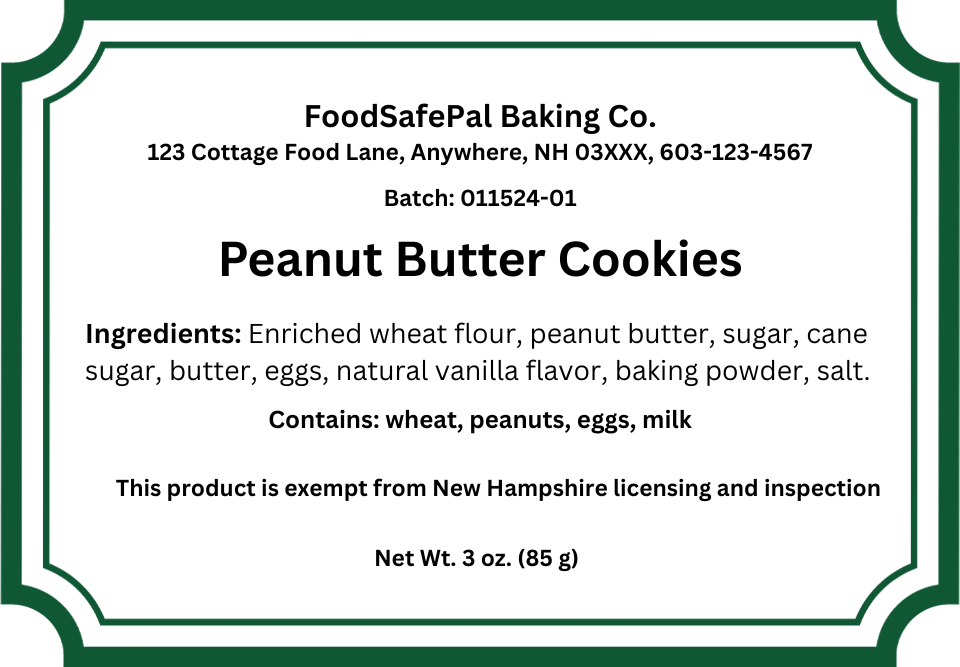
If you sell only from your home or farm stand, you may use a simplified label that does not require net weight or a product code. A full ingredient list is still required, either printed or provided through a website or QR code.
Summary
New Hampshire requires labels on all homestead foods. Most sales require the full standard label, but if you only sell from your home or farm stand, the state allows a simplified label.
The bottom line
New Hampshire’s Homestead Food Operation rules allow you to make and sell a wide range of homemade, shelf-stable foods from your home kitchen. You can operate as exempt or licensed depending on where you want to sell.
Food safety training isn’t required, but an ANAB-accredited food handler course from FoodSafePal can help you build trust, meet venue requirements, and show customers you take safety seriously.
All products must be properly labeled, including ingredient lists, allergen information, and the required operation statement.

Get Your New Hampshire Food Handlers Card
Instant certificate. 100% online in about 90 minutes.

